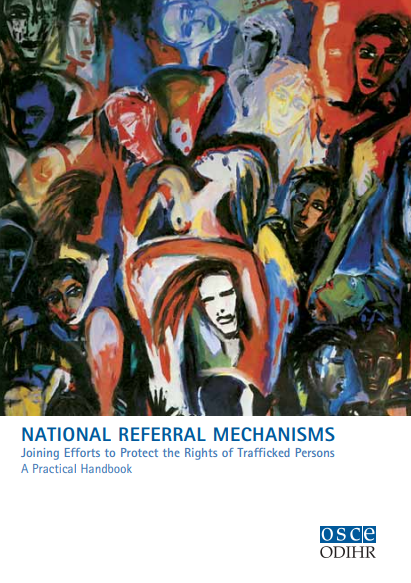This handbook sets out a framework for the creation and operation of an effective National Referral Mechanism (NRM). It describes the international legal obligations and political commitments that form the basis for establishing an NRM. It shows how anti-trafficking measures can be conceived and implemented on a national level through a NRM. And, it draws on the grass-roots experience of non-governmental organizations and OSCE field operations in fostering the creation of successful NRMs. This approach recognizes that many actors – including both government and civil society – must co-operate to develop a truly effective and comprehensive protection structure for trafficked persons. The handbook recognizes that an NRM should not be a static structure but that it can be continually improved through monitoring and suggestions from all participants, including, of course, the victims themselves.

